EARLY CHILDHOOD EDUCATION (18 months-6 yrs old)
In the early years it is necessary to establish a solid foundation for future learning.
Children need stimulating and age-appropriate experiences to reach their full potential. Up to the age of 6, a child´s brain thrives on exploring the world through games as well as building relationships with friends, teachers, family and community members. Child development is enhanced by the assortment of surroundings and forms of expression.
The "Early Years" program of the IB - Primary Years Program (PYP)*, provides carefully designed school environments to instigate interactions and discoveries. The Early Childhood Education syllabus at GIS SP - The International School of São Paulo is inspired by the Reggio Emilia approach and taught in English. It also complies with the guidelines of the new Brazilian Common National Curriculum Base.
The Reggio Emilia (RE) approach is based on the image of the child with strong developmental potential and advocates developing children´s innate creative potential. RE Educators have drawn together concepts from several different fields, such as philosophy, architecture, science, literature and visual communication, to present a wider world to children. The classroom offers a variety of materials and exploration spaces for children to learn through play. Young students are inspired to use their hands, minds, and hearts to experience and express themselves, while developing social skills such as sharing, self-discipline, and respecting their colleagues.
The IB program recognises that each child is unique and therefore adopts a student-centered education and focusing on the development of the child as whole person. Innovative, international educators challenge the children to think for themselves through an inquiry-led transdisciplinary framework, whereby they explore global issues in real-life contexts.
The proposed activities encourage the child to be curious and communicate not only through language, but also by through painting, music and building blocks for example. This holistic learning experience integrates socio-emotional, physical, and cognitive development.
The Role of Play
Play is the universal language of childhood. It is through play that children understand each other and make sense of the world around them. Children learn so much from play. It teaches them social skills such as sharing, taking turns, self-discipline and tolerance of others. Children’s lives are enhanced by playing creatively and it is through play that children develop emotionally and intellectually. Learning through play lays the foundations for all the core building blocks of life.

